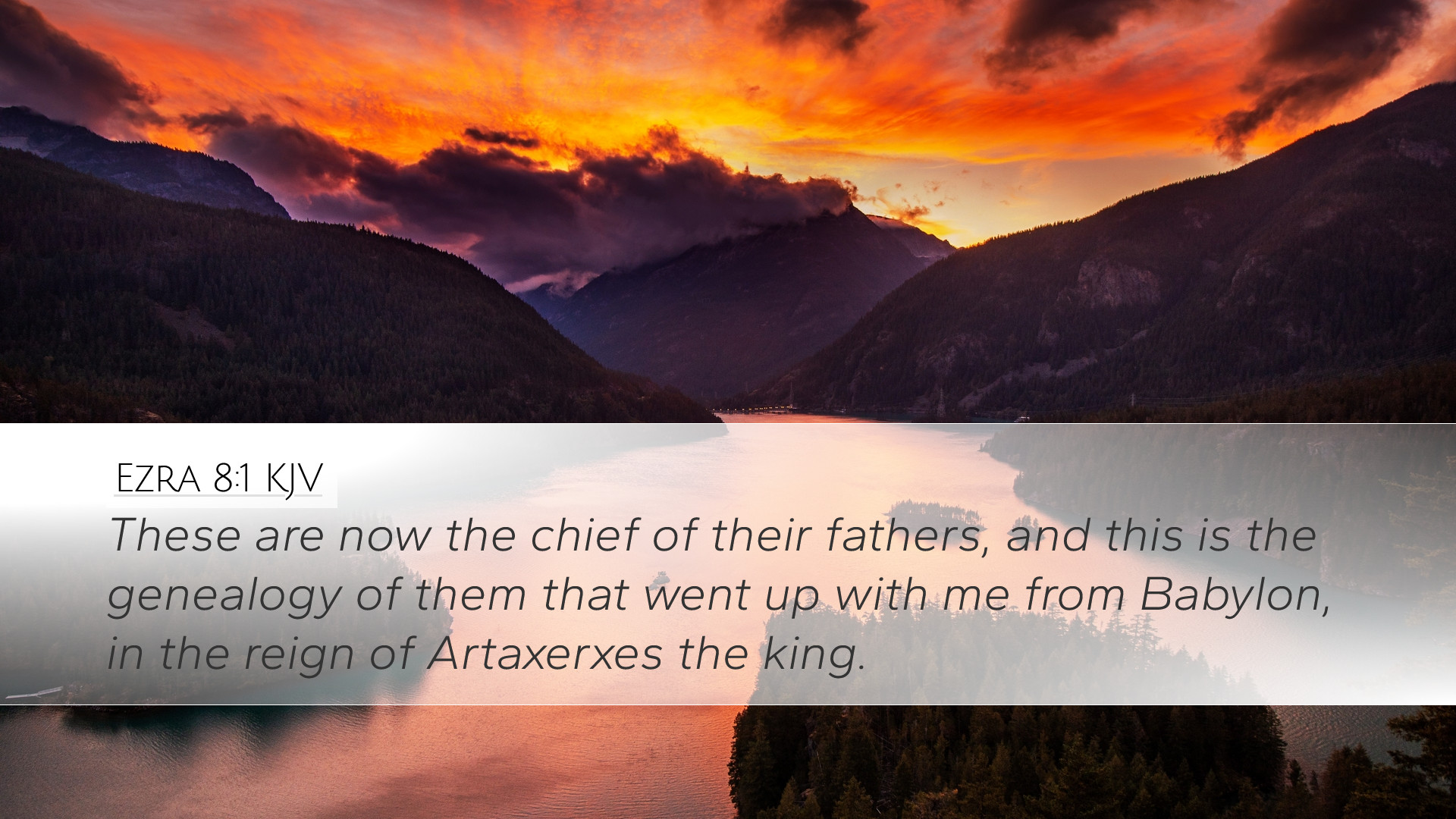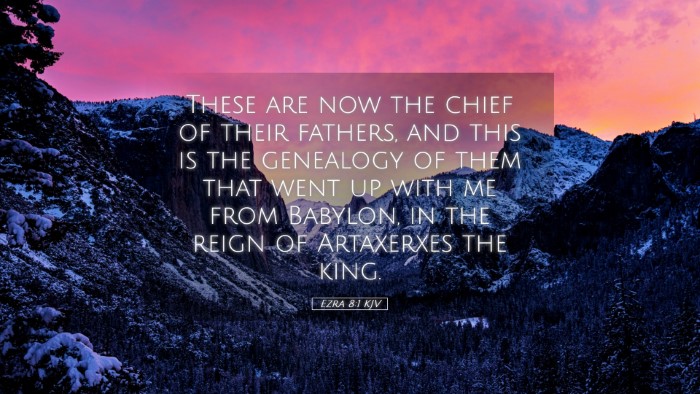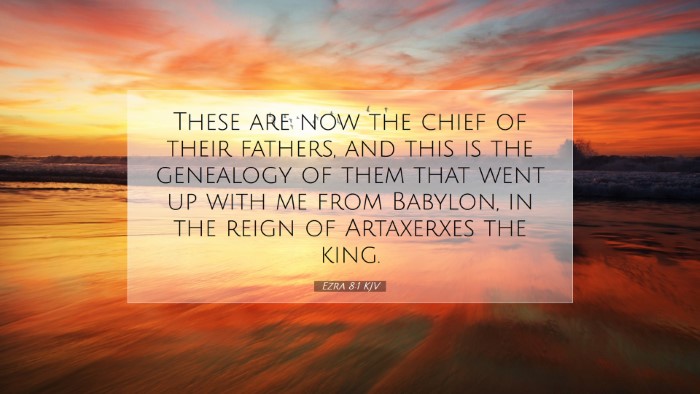Commentary on Ezra 8:1
Ezra 8:1 states:
"These are now the chief of their fathers, and this is the genealogy of them that went up with me from Babylon, in the reign of Artaxerxes the king."
Introduction
The narrative in Ezra 8 consists of a detailed account of the leaders and the families who returned from Babylon to Jerusalem under the leadership of Ezra. This verse serves as a prologue to a significant expedition that has both historical and theological implications.
Contextual Overview
The Book of Ezra details the return of the Jewish exiles from Babylonian captivity and their efforts to restore worship in Jerusalem. The mention of Artaxerxes, a Persian king, situates this passage around the 5th century BCE, highlighting the relationship between Jews and the Persian Empire.
Insights from Public Domain Commentaries
Matthew Henry's Commentary
Genealogical Significance: Henry emphasizes the importance of genealogy. Recording the names of the families returning signifies God's faithfulness in preserving a remnant of His people. It serves to establish identity and continuity among the returning exiles.
Leadership: The identification of the "chief of their fathers" indicates a structured leadership that would play a crucial role in resettling and organizing the people in Jerusalem. Henry notes that such structure reflects the need for order in the community.
Albert Barnes' Notes on the Bible
Historical Context: Barnes highlights that Ezra’s return was not merely a physical journey but a spiritual mission. The mention of Artaxerxes is also critical as it underlines the political climate, allowing for the Jews to return and restore their worship.
Family Structure: Barnes points out that the genealogical listings reveal the deep connections within families and tribes. This helps the returning exiles to reclaim their land and inheritance based on their lineage.
Adam Clarke's Commentary
Cultural Reflections: Clarke interprets the importance of the genealogy as a reflection of the values of the Jewish community. The meticulous recording of names illustrates their focus on heritage, which is key to their collective identity as God’s chosen people.
Spiritual Implications: Clarke adds a spiritual dimension to the genealogy by suggesting that it reflects a spiritual restoration of the community. The return from Babylon signifies not just a geographical return but a spiritual renewal under God's covenant.
Theological Reflections
From a theological perspective, Ezra 8:1 encapsulates several key themes:
- Providence: The gathering of these families represents God's providential hand in preserving the Jewish people during the exilic period.
- Restoration: The return from exile is a thematic restoration that figures heavily in Jewish theology and is echoed in the later prophetic literature.
- Covenant Identity: The genealogical record underscores the concept of covenant identity, reminding us that belonging to God's people is tied to a shared history and divine promises.
Practical Applications
This verse offers practical lessons for believers today, particularly in leadership and community-building:
- The Importance of Leadership: Ezra's role as a leader emphasizes the need for strong, faithful leadership in guiding communities towards spiritual goals.
- Understanding Our Heritage: Believers are encouraged to know and value their spiritual heritage, recognizing that they stand on the shoulders of those who came before them.
- The Call for Community: This passage reminds us of the importance of communities rooted in shared faith and history, working together towards a common purpose.
Conclusion
Ezra 8:1 serves as a foundational verse that opens up a broader narrative of restoration, identity, and leadership. It reminds us of God’s faithfulness in guiding His people through challenging transitions and serves as a call to recognize and value our collective identity in Christ, encouraging leaders to foster an environment where such identities can thrive.


